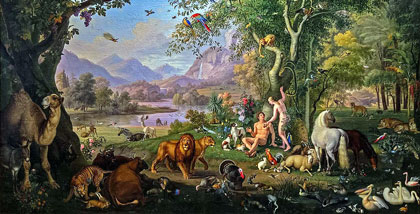
Foucault
I anticipate beginning a final revision of my comments upon selected passages from The Gay Science by Friedrich Nietzsche. Nietzsche’s writing compelled my attention upon my introduction to the late 19th century philosopher when I was much younger. I was in my late 20’s, a student. Many years have passed and somehow there remains a kindred spirit with this troubled scholar’s work.
Yesterday I reviewed an essay by Michel Foucault, one of the many intellectuals influenced by Nietzsche’s ideas. Foucault’s essay, Nietzsche, Genealogy, History is a exposition of his predecessor’s method of excavating as far as possible, to the historical beginnings of religion, ethics, truth, reason, etc..
Many segments of this essay are worthy of quotation. Here are two sections for your enjoyment and stimulation. It is likely that I will offer additional sections in future posts.
If the genealogist refuses to extend his faith in metaphysics, if he listens to history, he finds that there is “something altogether different” behind things: not a timeless and essential secret, but the secret that they have no essence or that their essence was fabricated in a piecemeal fashion from alien forms. Examining the history of reason, he learns that it was born in an altogether “reasonable” fashion – from chance[1],…
History also teaches how to laugh at the solemnities of the origin. The lofty origin is no more than a “metaphysical extension which arises from the belief that things are most precious and essential at the moment of birth.”[2] We tend to think that this is the moment of their greatest perfection, when they emerged dazzling from the hands of a creator or on the shadowless light of a first morning. The origin always precedes a Fall. It comes before the body, before the world and time; it is associated with the gods, and its story is always sung as a theogony.
But historical beginnings are lowly; not in the sense of modest or discrete like the steps of a dove, but derisive, and ironic, capable of undoing every infatuation.
“We wished to awaken the feeling of man’s sovereignty by showing his divine birth; this path is now forbidden since a monkey stands at the entrance.”
[1] The Dawn, by Friedrich Nietzsche, aphorism 123
[2] The Wander and His Shadow, by Friedrich Nietzsche, aphorism 3
The first paragraph is a broadside assault upon the assumption of an essential core, an identity which makes everything what-it-is. And following, the comment that “reason” originated by accident, by chance.
The second segment of three paragraphs discounts the creation story of Genesis, one of many myths of origin which ought to be taken with a grain of salt. And the last line is a reference to Charles Darwin’s work, On the Origin Of Species.
2 thoughts on “Foucault”
Thanks for the quotes. Two notes on today’s musing
First, I believe that it’s crucial to point out the general misnomer that we evolved from monkeys. This misconception has given fodder to creationists who rightly claim that we did not evolve from monkeys (though they incorrectly use this notion to claim we were divinely produced by some god). Monkeys, apes, bonobos, and orangutans are our distant cousins from which we have a common ancestor in the primate family, but we did not derive from these relatives. I believe that’s an important distinction.
The other thought that occurred to me is that we must be thankful that Nietzsche was born when he was, which just after the age of enlightenment. Imagine if he were born much earlier. He would have been deemed a heretic, have faced imprisonment or worse, and his ideas would have been discarded.
Yes, the distinction is meaningful in a positive way to many of us. For the Christian Biblical-literalists, human relation to other primates would be regarded as discounting their origin story. They’d see it as a distinction without a difference.